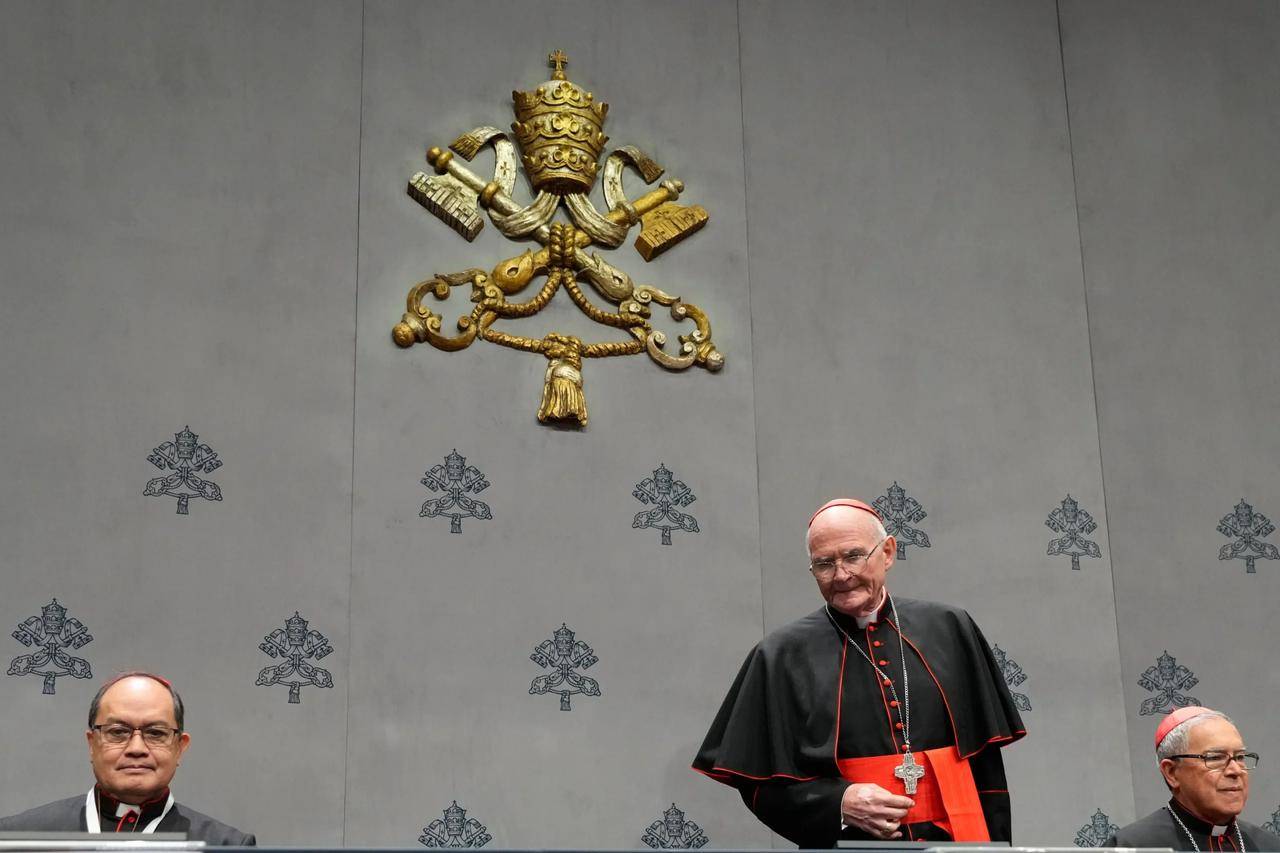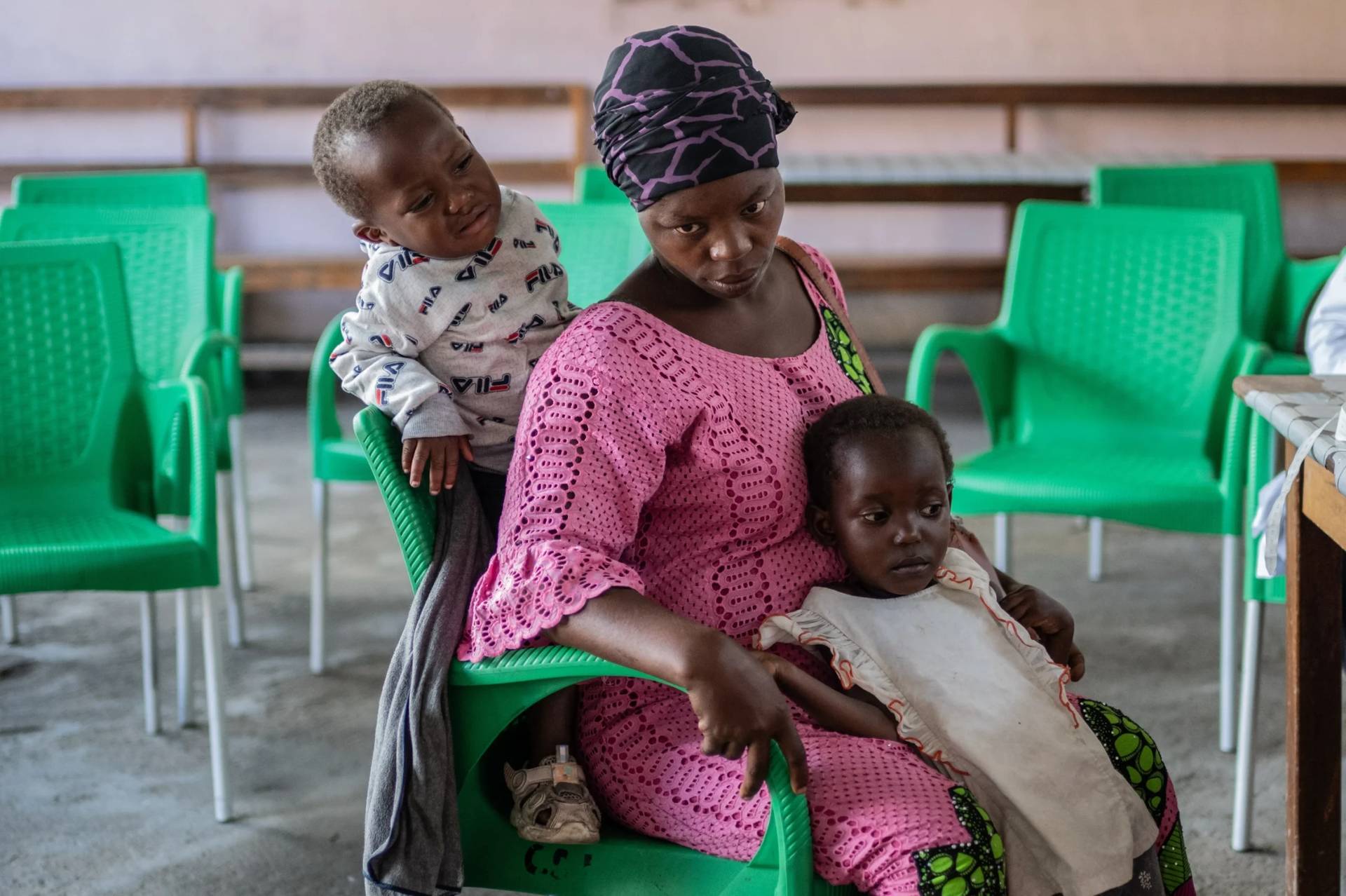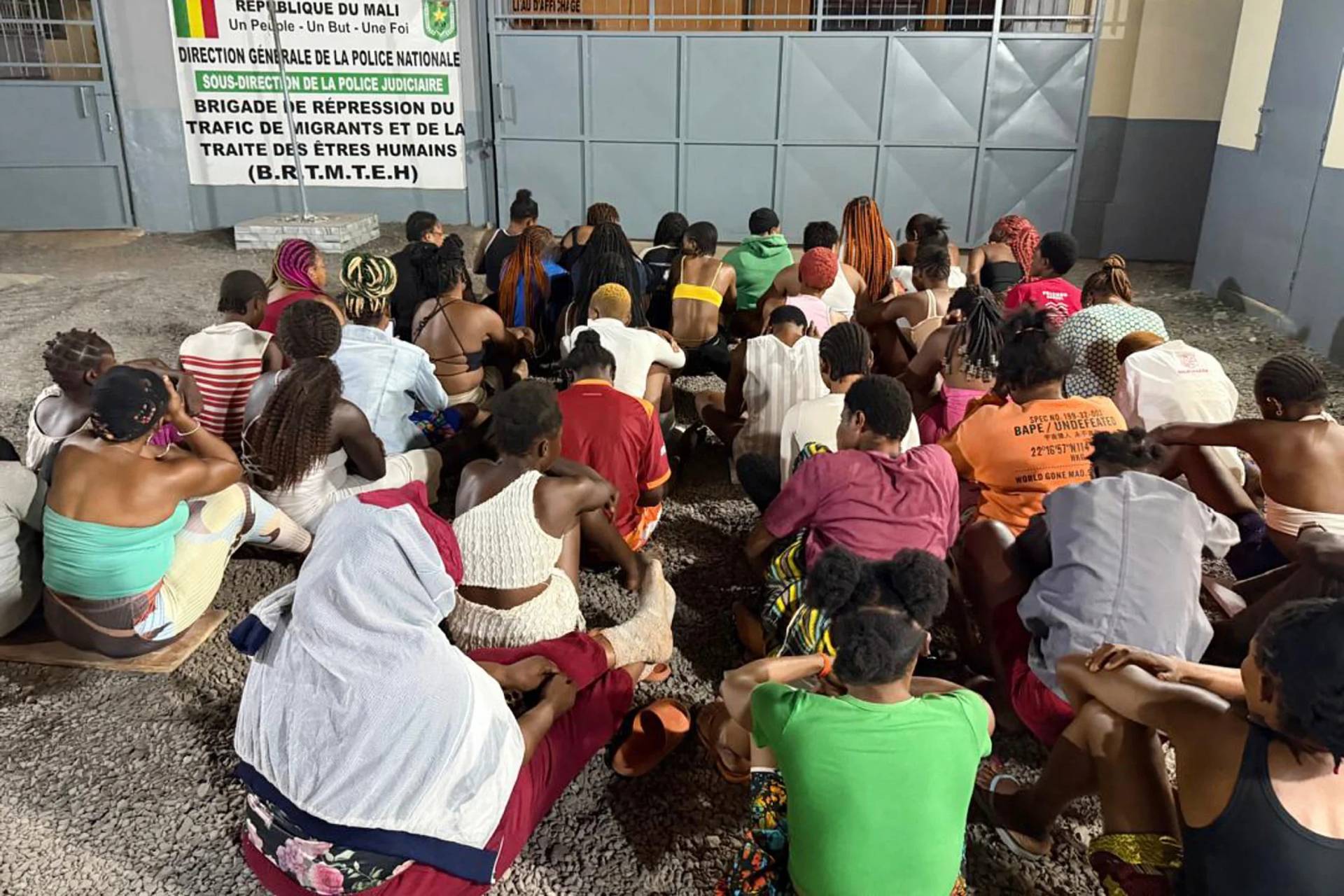YAOUNDÈ, Cameroon – An assembly bringing together clergy, religious, and laity from across Africa says the priorities for the Church include resisting an invasive secularism that threatens the continent’s cultural values.
The Continental Assembly of the Synod on Synodality took place in Addis Ababa, Ethiopia, March 1-6.
Some 200 delegates from across the continent pledged to “form the Synodal Family of God in the practice of integral and life-giving leadership that is relational and collaborative, and capable of generating solidarity and co-responsibility.”
Father Justine John Dyikuk is the former Director of Communications of the Nigerian Diocese of Bauchi Diocese and a Lecturer of Mass Communication at the University of Jos. He also serves as a Senior Fellow for International Religious Freedom Policy at the Religious Freedom Institute (RFI) in Washington, D.C.
He told Crux the conclusions of the continental assembly include “a confirmation of the Church’s way of doing things in Africa namely that the Family of God in Africa is firmly rooted in synodal themes such as dialogue with and listening to one another, listening to the Holy Spirit and showcasing the African identity and diversity without losing the essentials of the Catholic faith.”
What follows are excerpts of his email conversation with Crux.
Crux: The Continental Synod Assembly has ended in Addis Ababa. What
were the major conclusions?
Dyikuk: The major conclusions of the Synodal Continental Assembly include a confirmation of the Church’s way of doing things in Africa namely that the Family of God in Africa is firmly rooted in synodal themes such as dialogue with and listening to one another, listening to the Holy Spirit and showcasing the African identity and diversity without losing the essentials of the Catholic faith. Others include seeing the Church in the continent as “a synodal family of God on mission” in solidarity with the afflicted for “full and equal participation” in the life of the Church. As “a Synodal Church of Conversion and Reform,” the gathering desired “to overcome and root out the weeds of clericalism, authoritarianism” to become a “learning church” which listens “to the spirituality and wisdom of indigenous peoples and local cultures.”
Do you think the proposals made can help heal Africa’s deep divides?
Absolutely, because the Church Fathers emphatically stated that: “As the Synodal Family of God in Africa, we do not flee from the lived realities of our continent: the wounds of Africans are also the wounds of the Synodal Family of God. During our Continental Synodal Assembly, we have felt the pain and suffering of our sisters and brothers in Africa.” They also underlined that: “The Synodal Family of God walks with those who are affected by war, ethnic strife, religious intolerance, terrorism, and all forms of conflict, tension and violence. With solidarity, compassion and charity, the Synodal Church in Africa journeys with our sisters and brothers in distress.” With the imperatives of listening, dialogue and discernment in place, I am confident that the recommendations and conclusion reached would help heal Africa’s deep divides in conflict-ridden countries such Burkina Faso, Cameroon, Chad, DR Congo, Mali, Mozambique, Sudan, Niger, Nigeria, Somalia.
Crux: What really makes this synodal process different from previous synods?
It is crucial to note that the Ecclesial Assembly was quite different from previous ones because apart from the 9 cardinals, 29 bishops and 41 priests in attendance, majority of the 206 participants who gathered to walk, pray and celebrate together under the guidance of the Holy Spirit were lay women and men, consecrated people, including young people, and representatives of the other Christian traditions and faith traditions from all parts of the continent of Africa and Madagascar and the Islands.
This afforded the Church’s hierarchy in the continent to sit down and hear from members of the laity and other faith traditions. On top of that, the desire to jettison all forms of clericalism to practice an “integral and life-giving leadership that is relational and collaborative, and capable of generating solidarity and co-responsibility” makes the continental synod unique.
Who came up with the agenda for the Synod?
The synod came at the insistence of the Universal Church under the leadership of the Roman Pontiff, Pope Francis for the Church in Africa to celebrate its own Synodal Continental Assembly in line with the three-year synodal process titled, “For a Synodal Church: Communion, Participation, Mission” which culminates in two Synodal gatherings in Rome in October 2023. As such, the Addis Ababa, Ethiopia 1st – 6th March 2023 Synodal Continental Assembly was organised by the Symposium of Episcopal Conferences of Africa and Madagascar (SECAM) as a continuation of the two working sessions held in Accra, Ghana and Nairobi, Kenya, in December 2022 and January 2023 that prepared the agenda for the Synod.
A large number of German bishops and a German synodal path advocates for the blessing of same-sex unions, reshaping the priesthood and diaconate, including the ordination of women, allowing open Communion with Protestants and those in irregular marriages, and other doctrinal changes. What is your reaction to these proposals, and do you think Africa should buy into such proposals?
I am optimistic that Africa will not buy into such cheap proposals. The reason is simple – Recent data obtained by the Vatican shows that Africa and Nigeria where I come from have the largest number of faithful who attend Sunday Mass. This clearly indicates that the faith in Africa is vibrant and robust unlike what is happening in Germany or Continental Europe. By way of analysis, while the Church in Europe is rich financially, technologically and infrastructurally (in term terms of gothic Churches), it lacks population, clerical personnel (priests) and mass attendance by the young. By contrast, Africa is rich in population, priests and religious and a deep youth population who attend Holy Mass. However, the Church in that continent is financially poor and lacks technology and infrastructure.
Going forward, I think that instead of going the way of doctrinal changes as proposed by the German synodal path which is advocating for the blessing of same-sex unions, reshaping the priesthood and diaconate, including the ordination of women, allowing open Communion with Protestants and those in irregular marriages, the Church in Europe and America should form a stronger synergy of exchange of clergy, transfer of ecclesiastical knowledge, training of clergy/religious and sharing of the temporal goods of the Church with Africa, Asia and Latin America. This would make the Universal Church fare better.
Perhaps some questions that the German Church should answer include – Did the October 31, 1517, schism of Martin Luther make the Church better? Are there lessons from the Church of England which opened its doors to some of these doctrinal changes, yet numbers of the faithful have not swelled up since then? So, Africa has challenges such as war, hunger, infrastructure, ethnicity to mention a few that it is contending which the synod tried to address. Simply put, going the way of the German synod is going against the tenets of sacred scripture, sacred tradition and magisterial teachings.
Throughout this process, many confusing proclamations are being made
about the authentic way in which a Catholic follows Jesus. The Holy Father has at times stepped in and warned others not to follow the German way and chided that Germany “already has a great Protestant Church, but I don’t want another one.” How does an ordinary Catholic know what to do?
Every Catholic, clergy or lay know that they are living in the Truth and following the Way Jesus commanded if they hold to the tenets of sacred scripture, sacred tradition and magisterial teachings as I underscored earlier. The teachings of Jesus do not change. The Church under the guidance of the Pope Francis, the successor of Peter, is the referee. It is heart-warming that the Holy Father had to step in to warn others including Africa not to follow the German example. Our bishops and priests, their collaborators pass on the authentic faith in the one, Holy, Catholic and Apostolic Church.
Every Catholic should look to an institution that has the aforementioned four marks of the true Church established by Christ that started on Pentecost Sunday 33AD. I do not share the view that there were confusing proclamations in the synod about the authentic way in which a Catholic should follow Jesus. The communique is out there – it is commendable that the Church in Africa is committed to co-responsibility, caring for the afflicted, walking together joyfully and allowing the Holy Spirit to lead it “forward to continue to sow new seeds and harvest abundant fruits of synodality.”
There are increasing concerns in Africa about the invasion of secularism. Is secularism the Church’s greatest challenge in the continent?
It is unfortunate that in the name of globalisation, Africa is fast losing its most cherished values of communalism which elicits a high sense of fellow-feeling. Pope Francis has often called the attention of the world to the problem of “ideological colonization” in the continent. What is more, the invasion of secularism and modernism also affects some young people in the way they perceive God and the Church. While secularism is one of the challenges facing the Church in the continent,
I think two greatest challenges facing the Church in the continent include the threat of Islam and political instability leading to Christian persecution and sometimes wars. It is not surprising that the synod advocated for a “journey of conversion, reform and growth at personal, communal and institutional levels of the Church” while urging “the Clergy, Religious, Lay Men, Women and Children of Africa – not [to] allow the weeds to hinder” them from rejoicing in the joy of the Lord.
What are other major dangers the Church faces, especially vis-à-vis the synodal process?
Africa is confronted with issues of ethnicity/nepotism, and inculturation. It is, therefore, interesting to note that the continental synod maintained that the Church “stretches out, and includes all our differences, diversity, tensions and forces; welcomes others and makes room for their diversity; empties herself, but without losing the foundations and fundamentals of our faith.” The synod reinformed its commitment to maintaining the unity of the spirit in the bond of peace while urging the Universal Church to respect the Church in the African continent, which is unique, as a partner in progress, marching toward heaven.
your opinion, what are the greatest areas of reform needed to renew the Church?
I think that the greatest areas of reform needed to renew the Church is the sign of Jonah (Cf. Matthew 12:38-42 & Mark 8:12) – that is repentance. There are liberals who think that organisational reforms are enough to move the Church forward. I do not share this sentiment. Let us ask ourselves – have we fulfilled demands of the 10 commandments, the six laws of the Church, and the seven sacraments? More than ever, what we need is repentance and righteousness. Those seeking to rejig the Church in terms of enforcing reforms might end of up as victims of a secular agenda which falls short of what Jesus taught, lived, died for and handed on. So, to answer your question, rather than become obsessed with demands for organisational and administrative reforms, let us stick to the time-tested authentic values of the kingdom espoused by the Church, the bride of Christ awaiting when he would come in glory “to judge the living and the death” as we profess in the creed.











